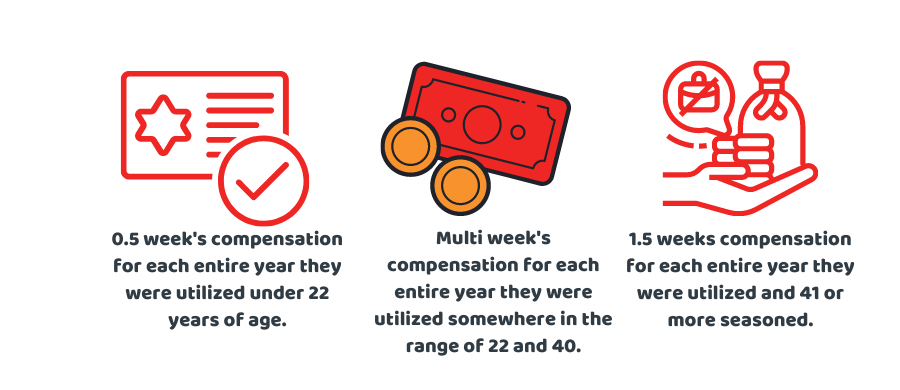The continuous employment rules can assume a pivotal part in deciding the work privileges of your labor force. See what these standards work and how they might possibly mean for your dynamic when managing a worker’s work environment rights and firing an agreement of the business.
What is Continuous Employment?
Continuous employment alludes to the continuous period during which a representative has worked for one boss. it can likewise apply where a worker attempted work for a past boss, for instance, where the representative exchanges starting with one boss then onto the next.
There are standard rights that all representatives will be qualified for from the very first moment of their business, while others that lone build with time. Having finished a specific passing time of administration, representatives will then, at that point become qualified for upgraded business rights, including:
- The option to guarantee out-of-line excusal.
- The right to a legal repetition installment.
- The right to legal maternity, paternity, and reception pay.
- The option to take paternity leave.
- The option to make an adaptable working solicitation.
A worker may likewise be qualified for upgraded authoritative rights whenever they have arrived at a specific length of administration, contingent upon the particulars of their business contract. This could incorporate, for instance, extra yearly leave, improved legally binding repetition pay, or whatever other upgraded rights that trigger under the agreement after a passing timeframe with their boss.
What are the Rules for Continuous Employment?
The principles on continuous employment are represented by the arrangements of the Employment Rights Act 1996, giving representatives with a specific passing time of administration different improved legal business rights.
The time of administration required will shift contingent upon the right that the representative is looking to affirm, for instance, a time of 26 weeks’ constant work is needed for a worker to guarantee legal maternity or paternity pay, while a time of two years’ administration is normally important to guarantee either unreasonable excusal or legal repetition pay.
A representative’s time of continuous employment starts on the principal day of their agreement of work and is ordinarily determined on seven days by-week premise, except if it is important to figure the length of the time of work in months and a long time all things being equal.
Get an instant quote based on your requirements online in under 2 minutes, Sign up online, or request a callback.
Uncalled for Excusal:
To be qualified to make a case for uncalled-for excusal, a representative should for the most part have gathered long-term persistent business. This is determined from the date of their business agreement to the compelling date of end.
It is additionally significant that a few excusals can be classed as consequently unjustifiable, for which no passing help period is required. This could incorporate, for instance, where the excusal is displayed to have been prejudicial by reason of a secured trademark, like age, incapacity, or sex.
Legal Repetition Installments:
To be qualified for legal repetition pay, similarly as with out-of-line excusal, a representative probably gathered long term’s persistent work.
This implies that where a worker has under two years’ administration with you, they won’t be qualified for an excess installment, except if they are generally qualified for installment under the provisions of any word-related repetition plot.
Recall that length of administration will likewise affect the level of the legal excess installment to which they are entitled.
The measure of an excess installment should be determined by deciding the time of consistent business, finishing on the significant date, figuring in reverse from the finish of that period the number of long stretches of work falling inside that period, and permitting the fitting sum for every one of those years.
This is determined utilizing an equation including seven days’ compensation (covered at £538), the representative’s length of administration (covered at 20 years), and their age section:
- 0.5 week’s compensation for each entire year they were utilized under 22 years of age.
- multi week’s compensation for each entire year they were utilized somewhere in the range of 22 and 40.
- 1.5 weeks compensation for each entire year they were utilized and 41 or more seasoned.
Similarly, as with unreasonable excusal, where a worker is excused with installment in lieu of notice, to ascertain their length of administration for the motivations behind legal repetition pay, you should add on the base legal notification time frame to the representative’s assistance as at the date on which the business closes.
Planning to retire in the next few years? Plan ahead, let’s talk.
When is a Progression of work ‘broken’?
Assuming there is a break in the business, ordinarily, none of the time worked before that date will consider consistent assistance. For instance, in case somebody was utilized by you for quite a while, however, accepted a position with another business for a half year prior to getting back to your organization, their nonstop work would exclude any of the time recently worked for you. Any calculation of their time of administration would have to run from the date of their new agreement.
There are likewise sure legal special cases where brief breaks in ordinary work can, in any case, be checked towards nonstop business. Nonattendance from work because of any of the accompanying occasions won’t for the most part break a representative’s progression of administration:
- Times of affliction or yearly leave.
- Maternity, paternity, parental, or reception leave.
- Other time off permitted under the agreement of work.
- At the point when a representative is away from work in conditions that are ordinarily viewed as a consistent business due to a course of action or custom in the work environment.
- At the point when a worker is missing from function as the consequence of a brief discontinuance of work, for instance, the work environment isn’t protected.
- At the point when a representative is excused on the grounds of weakness because of ailment or injury yet, they are re-employed inside a 26-week time span.
Boss Lockouts:
During modern or strike activity a representative’s consistent work isn’t broken but instead delayed by the number of days falling inside that mediating period or the total number of days falling inside those periods.
This implies that when a worker strikes, these days don’t check towards persistent business, yet this isn’t treated as a break in their congruity of work. For instance, if a representative began to work for you on 1 January 2020 and throughout the span of one year they went through five days protesting, their beginning date for figuring persistent business would move to 6 January 2020.
Conclusion:
The time of continuous employment for representatives on a fixed-term contract moving to a super durable agreement will rely upon the degree of any break between the beginning and end-point of these agreements. Nonetheless, the standard exemptions will apply, like where a worker is missing through disease or injury.
Still, have a question? Get in touch with us.
Disclaimer: This article contains general information on Continuous Employment.






















































